Edgar Poe as Cultural Warrior Part 1
The Society of the Cincinnatus: Solving a 170 Year Murder Mystery
[Note to readers: The following 13 part series serves as a sister piece to the ongoing Occult Tesla series. While it is not necessary to read the Occult Tesla series to appreciate the following serial, it will definitely enrich the experience… especially as we begin to approach the role of Sir Arthur Conan Doyle, the Hermetic Order of the Golden Dawn, Jack the Ripper and the deeper story behind the ritual murder of Mary Rogers.]
Solving a 170 Year Murder Mystery
On October 3, 1849, Edgar Allan Poe was found incoherent, wearing someone else’s clothing, and most likely poisoned in Baltimore.
Within hours, he was admitted to a hospital, put under isolation in a hospice run by the Knights of St. John of Jerusalem, permitted no visitors for several days, and by October 7, the great poet was dead.
On October 8, 1849, Poe’s nemesis Rufus Griswold wrote a toxic national eulogy:
“Edgar Allan Poe is dead. He died in Baltimore the day before yesterday. This announcement will startle many, but few will be grieved by it… There seemed to him no moral susceptibility. And what was more remarkable in a proud nature, little or nothing of the true point of honor. He had, to a morbid excess, that desire to rise which is vulgarly called ambition, but no wish for the esteem or the love of his species, only the hard wish to succeed, not shine, not serve, but succeed, that he might have the right to despise a world which galled his self-conceit.”
By some strange set of events, Rufus Griswold somehow managed to become Poe’s official biographer (forging false letters attributed to Poe’s hand). He even became the literary executor of Poe’s estate, purchasing all of his personal letters from the author’s impoverished aunt, and then painting the image of a drunken, death-obsessed, egotistical, opium addict for all posterity.
Less than two years later, Griswold also became the principal narrative controller of the biographies of Poe’s lifelong friend James Fenimore Cooper (whose untimely death in 1851 also smelled of poisoning)- even chairing a committee memorializing the life of Cooper.
But why would anyone go into such effort as to murder an American literary genius twice… first in body and then in character?
The Society of the Cincinnati: America’s Renaissance Intelligence Agency
Like the American magician Harry Houdini (1878-1926), Edgar Allan Poe was not only a penetrating mind, but was also a cultural warrior engaged in counter-intelligence operating through an international agency called ‘The Society of the Cincinnati’.
In The Fight for the American Republic: James Fenimore Cooper and the Society of the Cincinnati, historian Pat Ruckert described this agency:
“In the years following the end of the Revolutionary War (1783) and the adoption of the U.S. Constitution (1789), the British-led oligarchy still hoped to reverse their defeat. In order to meet the challenge posed by the British, the Revolutionary War leadership had established a private, political intelligence organization aimed at not only protecting the young republic, but also, replicating its achievements on a world scale. The Society of the Cincinnati was founded in May 1783 by Baron von Steuben, Samuel Verplanck, Washington, and Hamilton. France's Marquis de Lafayette founded the European branch of the Society, and along with, especially, German republican forces, created the network, of which, 40 years later, James Fenimore Cooper would be a leader.”
Open to the sons, and grandsons of the leaders of the American revolution, Edgar Poe (whose grandfather David Poe was quartermaster general in Washington’s continental army and founding member of the society) worked closely with Cooper, Samuel Morse, General Thayer and Marquis de Lafayette in France as I outlined in my 2019 lecture on the topic.
Most Poe “experts” tend to promote the narrative that Poe was a deviant or at least incompetent student who was expelled from the elite West Point military academy in 1830.
However, evidence demonstrates a very different picture, which ties Poe into an international conspiracy designed to renew the failed efforts to extend the victories of 1776 to France and beyond.
In 1831, Poe asked fellow Society of Cincinnatus member General Sylvanus Thayer (then head of West Point) for an early discharge in order to go to France writing:
“Dear Sir,
Having no longer any ties which can bind me to my native country… I intend by the first opportunity to proceed to Paris with the view of obtaining through the interest of the Marquis de Lafayette, an appointment (if possible) in the Polish Army. In the event of the interference of France in behalf of Poland this may easily be effected- at all events it will be my only feasible plan of proceedure. The object of this letter is respectfully to request that you will give me such assistance as may lie in your power in the furtherance of my views. A certificate of standing in my class is all that I have any right to expect. Anything further- a letter to a friend in Paris- or to the Marquis- would be a kindness which I should never forget” [1]
Much effort has been invested in giving off the notion that Poe was a deviant sociopath who never left America throughout his entire life, so perhaps it is useful to add another piece of evidence to the court. In 1929, a rare book dealer named David Wells discovered a letter from the hand of french author Alexandre Dumas, dated 1832 documenting his relationship with a man named ‘Edgar Poe’:
“It was about the year 1832. One day, an American presented himself at my house, with an introduction from… James Fenimore Cooper. Needless to say, I welcomed him with open arms. His name was Edgar Poe. From the outset, I realized that I had to deal with a remarkable man. Two or three remarks which he made upon my furniture, the things I had about me, the way my articles of everyday use were strewn about the room, and on my moral and intellectual characteristics, impressed me with their accuracy and truth”
Why Poe was in France: Lafayette’s 2nd Chance
By 1831, Poe’s appearance in France alongside James Fenimore Cooper involved the leading role of the aging revolutionary the Marquis Lafayette, who at 19, became a leading figure in the American revolution, and at 32 nearly became President of France. As France’s republican revolution of 1789 turned into a British freemasonic jacobin terror, Marquis fled for his life and lived through much of the French Revolution in a Hapsburg dungeon as an enemy of the oligarchy after the revolution was hijacked and converted into a color revolution by the British Foreign Office.
As Uwe Alschner detailed, Beethoven’s 1803 opera Fidelio features a brilliant telling of Lafayette’s ordeals as a political prisoner in Austria.
From 1824-1830, Lafayette, operating as head of the European branch of the Society of the Cincinnati, was organizing an international counter revolution to the Congress of Vienna and Holy Alliance of 1815-1819 which restored the hereditary oligarchies of Europe (and reconstituted the Jesuits in western Europe) after the hellish years of the Napoleonic wars.
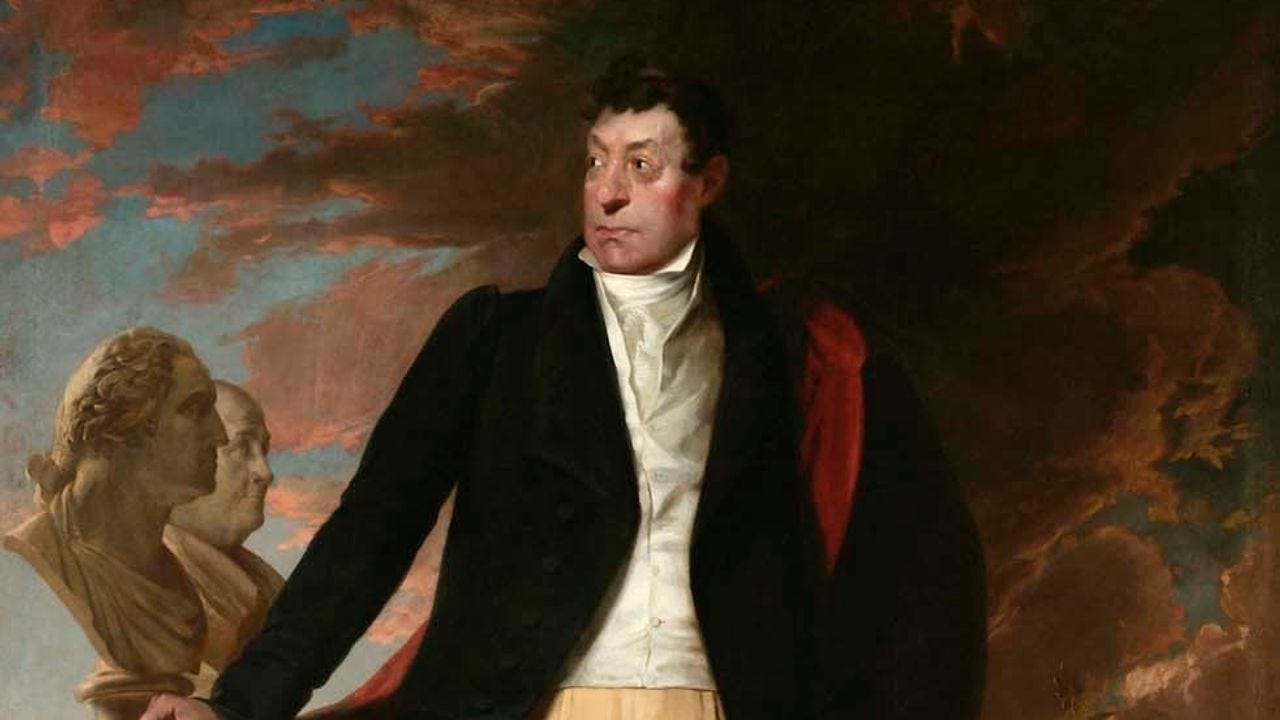
Much of his organizing for this little known historical movement entailed a months long sojourn to America where the war hero campaigned for the presidency of John Quincy Adams (who narrowly defeated the Wall Street candidates of his day in 1824), and organized American support for a new European revolution that was to begin in France in 1830.
The plan was simple: The French population was ready to revolt against the abuses of the new king and Lafayette was positioned to take control. Once he was declared the President of France and the errors of the Jacobin bloodbath of 1789-94 was corrected, then republican movements were ready declare independence in Poland, followed by movements in Germany, Spain and beyond. But it had to first work in France.
From 1828-1833, some of the greatest intellects of America found themselves in France working to advance this cause. Some of the most notable figures working closely with Lafayette were James Fenimore Cooper, American inventor, artist and spy Samuel B. Morse, Edgar Poe, West Point leader General Sylvanus Thayer, and America’s ambassador to Spain Washington Irving.
Lafayette’s Failure to Break with the Hereditary Principle
Professor Pierre Beaudry in his ground breaking study Lafayette and the Hereditary Principle (2008) quotes France’s great Foreign Minister and historian Gabriel Hanotaux who described the paradox of France of 1789 and 1830:
“The question is always the fight between the two principles: the hereditary principle and the revolutionary principle. It is the dispute of the two Frances, the quarrel of the two flags which lingers on, and which renders impotent all government system, unless it is stopped once and for all.”
When the time came for Lafayette to declare himself President of the French republic on July 31 1830, thousands of Parisian citizens shouted his name in front of City Hall after days of rioting. However, at the last minute, Lafayette failed to capture the moment and gave into the false promises of Philippe Egalite’s son (the Duke of Orleans) who agreed to become a “republican King of France” and make Lafayette the head of the National Guard and defender of the people. Waiting until the last minute, Lafayette decided tragically to go to the balcony with Louis Philippe at his side. In front of thousands of onlookers, Lafayette ignored the popular calls to become president and instead embraced the monarch and within minutes France had a new king under Louis Philippe I.
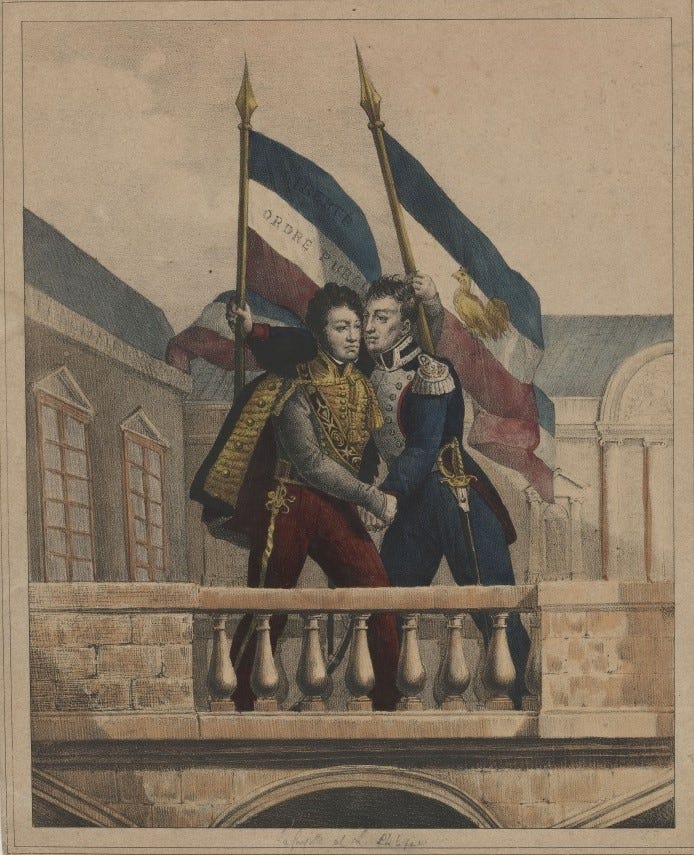
Gabriel Hanotaux reported on the dialogue between Lafayette and the soon-to-be monarch moments before the embrace:
“You know,” said to him Lafayette, “that I am a republican and that I consider the Constitution of the United States as the most perfect that ever existed.”
– “I think as you do,” replied the Duke of Orleans, “It is impossible to have lived two years in the United States and not be of that opinion; but, do you believe that, in the situation that France is in, and following public opinion, it would be right to adopt it?”
– “No,” replied Lafayette, “what the French people need today, is a popular monarchy, surrounded by republican institutions, completely republican .”
– That is precisely what I intend to do,” said the prince.”
Within months, the Marquis Lafayette had been fired from his position as head of the National Guard. The republican movement of Poland was annihilated as none of the support needed to advance their revolution was given by a monarchist France and the surviving revolutionaries made their way to France after the failed October uprising to find temporary protection under Lafayette. Lafayette was horrified as he watched the new king enmesh France into a deep alliance with Britain while expanding its colonial policy abroad.
Lafayette died in 1834 after watching King Louis Philippe turn on the people and become the same tyrant which the revolution of 1789 sought to end. In spite of his death, the fervor for freedom from monarchism couldn’t be stifled directly. Instead, a technique was honed called neo-Jacobinism which used anarchism to direct the rage of the masses towards breaking all structures identified as “the establishment” while in reality keeping said establishment in place. Today’s color revolutions are merely 21st century versions of this 19th century technique.
Lord Palmerston who ran Britain’s Foreign Office and worked closely with the Holy Alliance, used a vast array of assets throughout the 1830s, 1840s and 1850s to direct the polarized energy of disenfranchised youth towards the greatest degrees of chaos possible under the heading of the Young Europe Movement.
Jesuits, Confederates and Transcendentalists Undermine America
Working closely with Italian Grand Master Freemason Giuseppe Mazzini, Young Italy, Young Germany, Young Russia, Young Bosnia, Young Ireland movements were created.
A Young America Movement grew in the United States under the guidance of Ralph Waldo Emerson (himself under the direction of British Intelligence’s Thomas Carlyle) and the new movement of New England Transcendentalists which Edgar Poe fought against tooth and nail.
In an 1842 editorial, Poe called out this British-subversion of America’s moral culture writing:
“We know that the British bear us little but ill will—we know that in no case do they utter unbiased opinions of American books—we know that in the few instances in which our writers have been treated with common decency in England these writers have either paid homage to English institutions or have had lurking at the bottom of their hearts a secret principle at war with democracy. We do indeed demand the Nationality of Self-respect. In letters as in Government, we require a Declaration of Independence— a better thing still would be a Declaration of War”.
Additionally in 1841, inventor Samuel Morse wrote an invaluable book entitled Foreign Conspiracies Against the Liberties of the United States by describing Prince Metternich’s Holy Alliance and it’s deployment of Jesuits throughout the Americas to undo the American revolution when he said “the latter come from the same quarter, in the shape of hundreds of Jesuits and priests; a class of men notorious for their intrigue and political arts, and who have a complete military organization through the United States.”
While the ‘Young America’ Transcendentalists in the north grew in influence promoting a new self-centered mysticism antagonistic to the principles of America’s constitution, Jesuit infiltration spread throughout all layers of influence in the Americas. A third branch of warfare was deployed as Giuseppe Mazzini coordinated a Confederate general by the name of Albert Pike who was to go onto lead the southern secession movement alongside British Foreign Office asset Jefferson Davis which nearly put an end to the American experiment in 1861.
Under Mazzini’s direction, Pike revamped the Scottish Rite and created the KKK, both of which were instrumental in undermining America’s constitutional traditions from within.
In the following segment of this series ‘Poe and Beethoven VS the Cult of AI’ we will come to see how both Poe and Ludwig van Beethoven opposed the efforts to create an ‘artificial intelligence cult’ in the early 19th century.
[1] Poe to Sylvanus Thayer New York March 10th 1831.




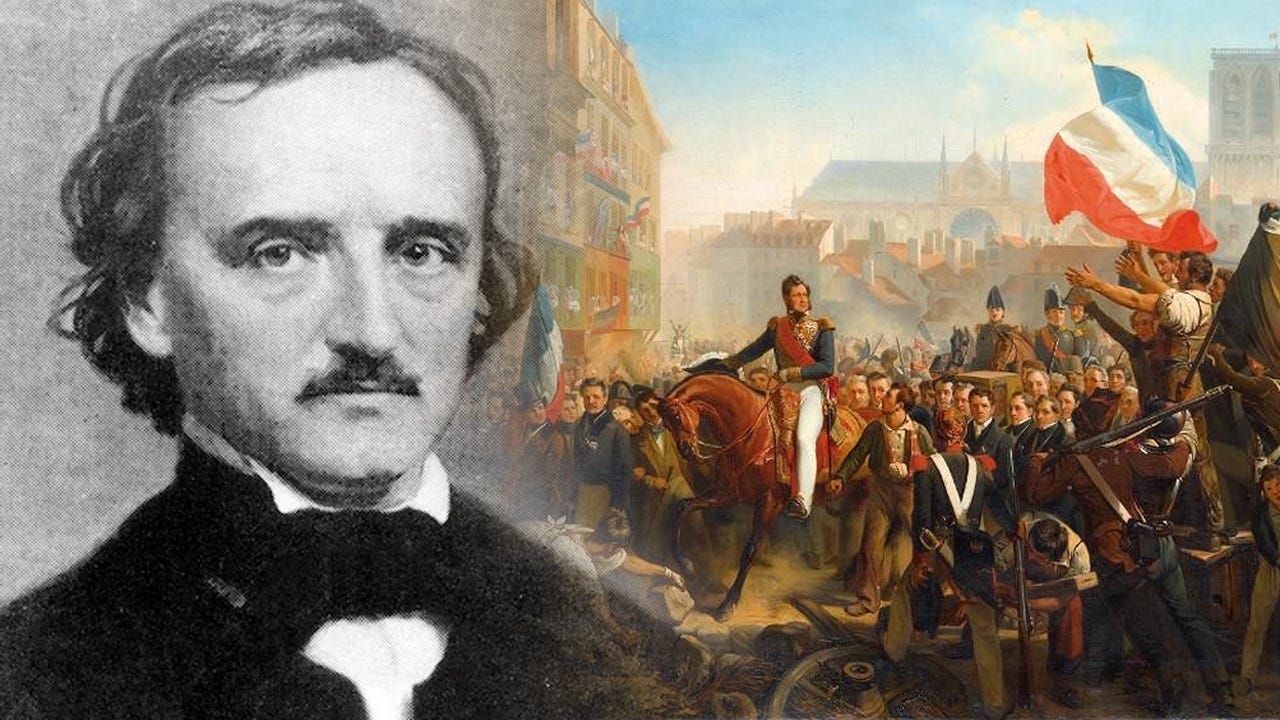
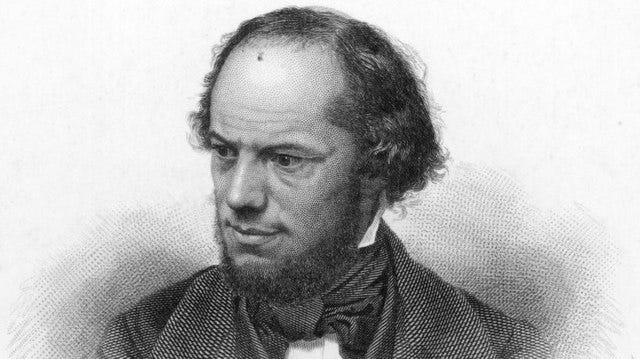
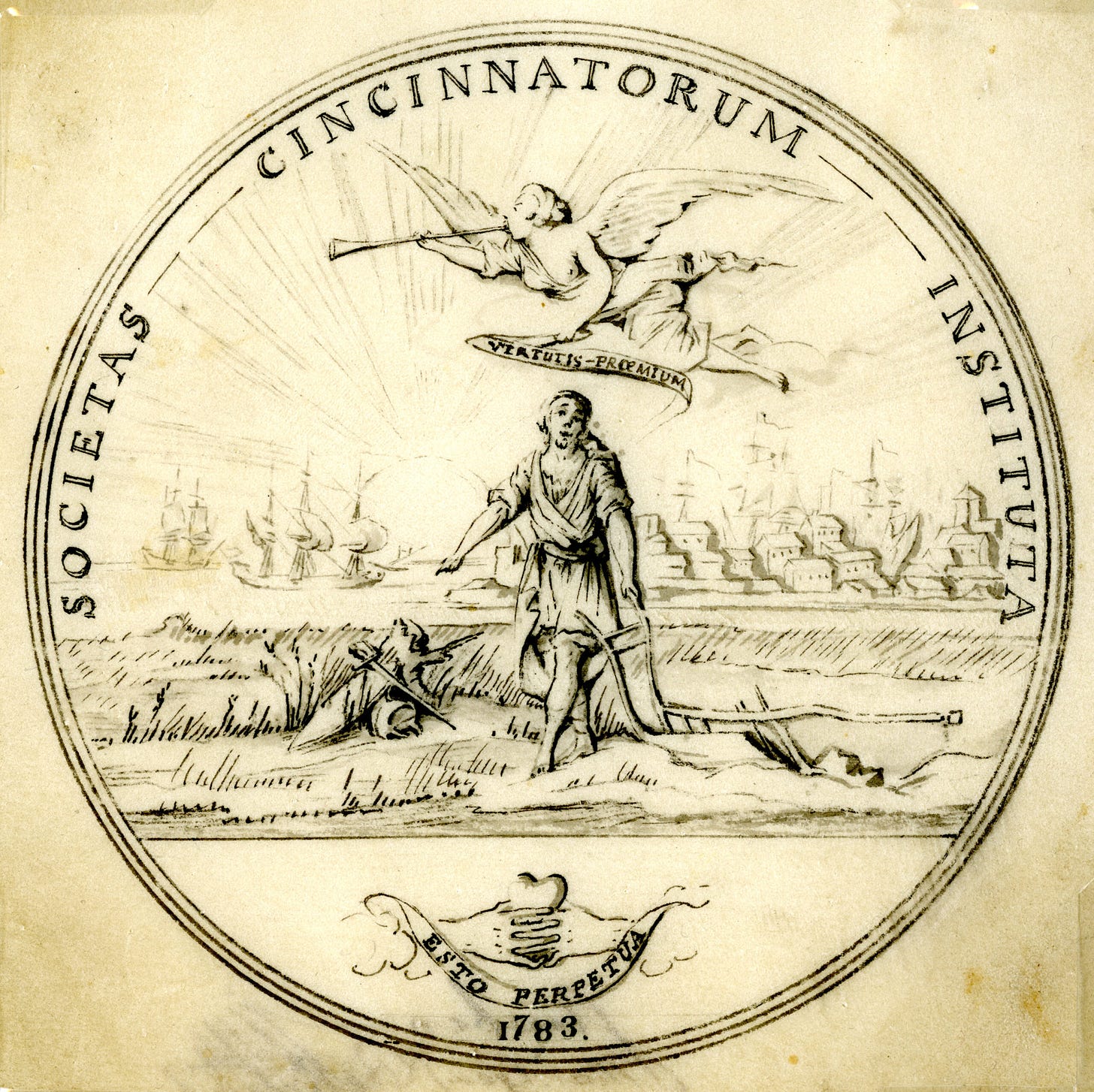
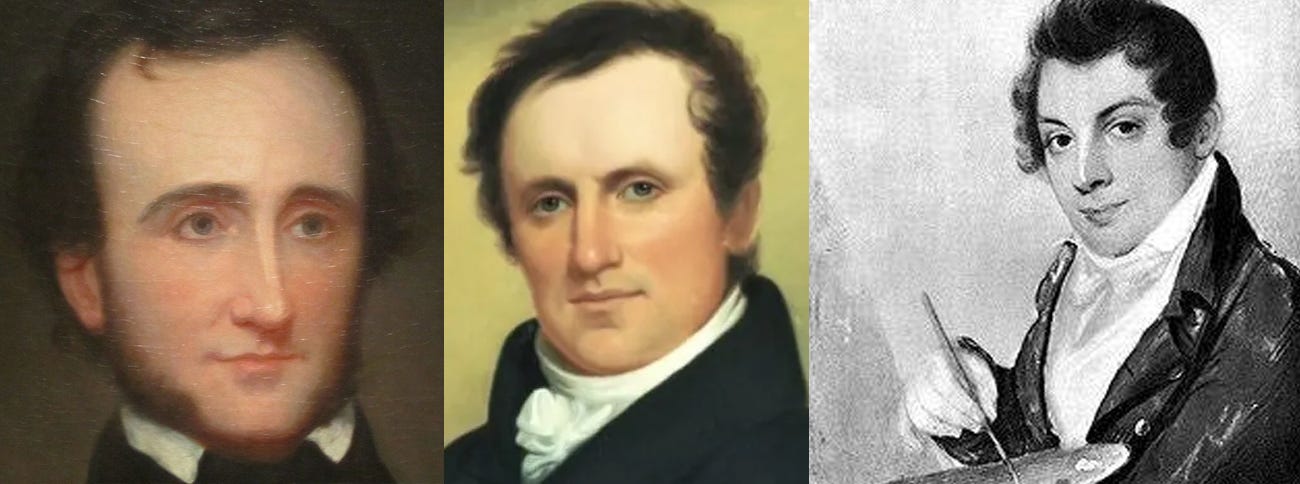
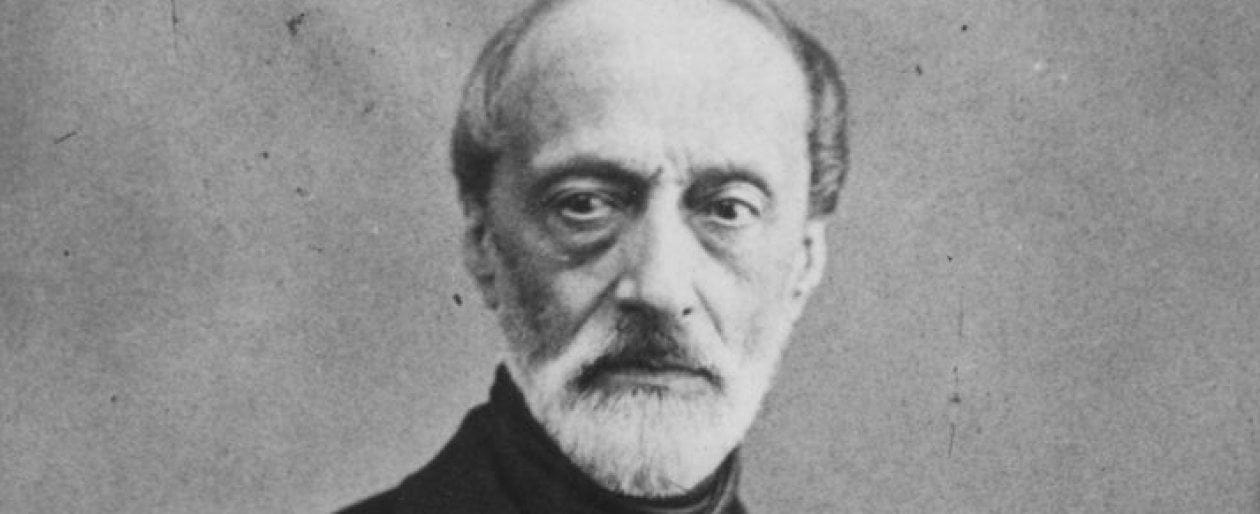




Wowzer! I am somewhat of a Poe enthusiast with much reading in my background regarding him and his works and life, including writing a bio-pic screenplay keep close to the truth and not some of the ridiculous things written about him which almost had a chance to be made in vicious money addled Hollywood of the 90s.
And yet - this is an aspect of his life I never dreamed of! What history has been so lost? Our greatest early American writer that put US letters on the map and helped facilitate the birth of Modernism through his significant influence on Baudelaire (who translated his works into French and launched the pre-gothic anti-hero archtype upon the world)- also an intelligence agent and spy, and in France?! this is a revolutionary take on Poe's life. I am impressed and compelled. Thank you Matt. Poe was always a Francophile, but now his literary legacy will have to be re-examined in the context of the French visit's influence on his works!
Your grasp of the many unknown elements of history is expansive and educational in the extreme! Thank you!